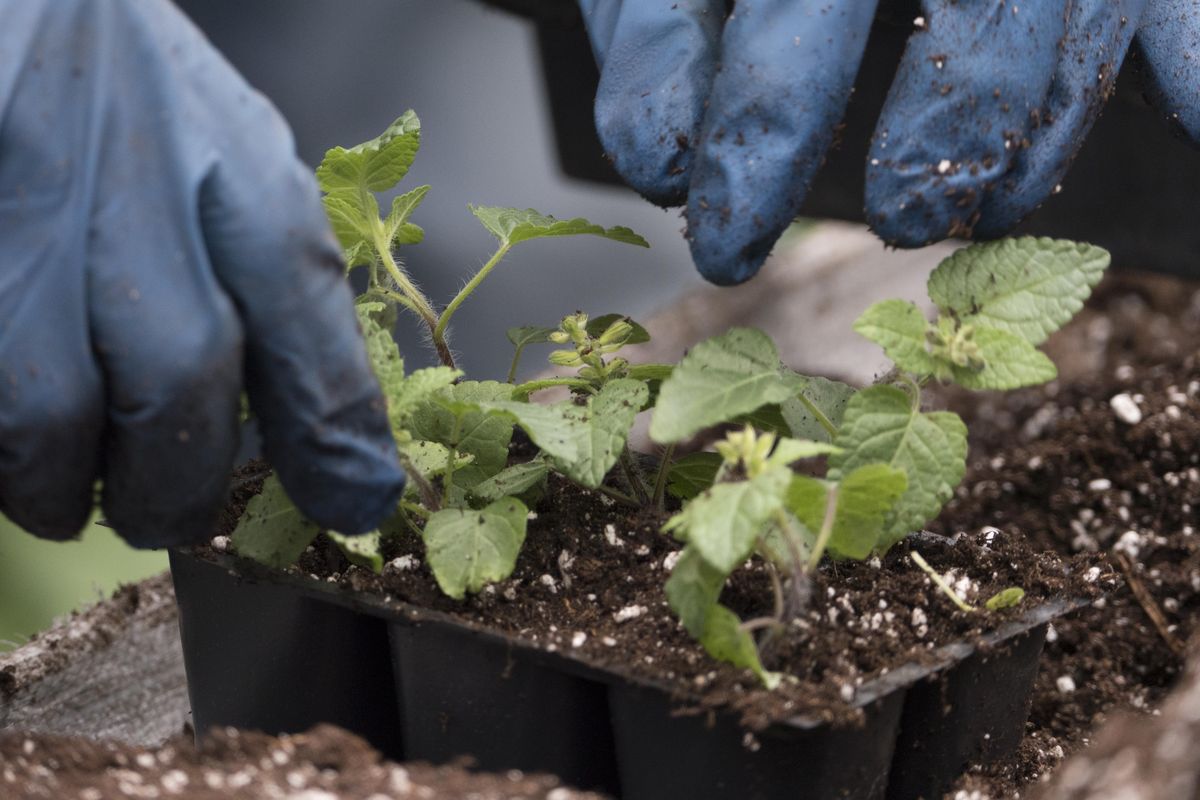Ever-growing Associated Garden Clubs plans annual plant sale

The Associated Garden Clubs of Spokane have been a fixture in the Lilac City since 1933, having initiated what became the Spokane Lilac Festival and torchlight parade today.
Several years ago its membership was aging and declining in numbers.
But that trend has reversed.
Associated gained 100 new members in the past year and now has a roster of 283 names, said Jennifer Ogden, a member the board of directors.
The organization now has 12 affiliated garden groups, including several that work in the community to promote gardening as a healthy lifestyle choice.
“We are really starting to reach out in the community in a social service way,” she said.
Volunteers for Associated will hold their annual plant sale this weekend to raise money for projects in the community.
The sale will be Saturday from 9 a.m. to 5 p.m. and Sunday from 10 a.m. to 2 p.m. at the production greenhouses east of the Gaiser Conservatory in Manito Park.
Plants are raised without chemicals, said Norma Gavin, a co-president of Associated.
The stock includes organic vegetables and herbs, annuals, perennials, hanging baskets, house plants, cuttings from the Gaiser Conservatory and designed container plantings.
“We are going to have scores of hellebores this year,” said Kevin Brownlee, president of the Spokane Rose Society, which has about 80 members.
Last year’s plant sale raised $15,000, including money for a $1,500 scholarship to a member of the Lilac court.
More than $240,000 has gone back to the community since Associated started tracking its annual donations in 1986.
Associated is a registered 501(c)3 nonprofit organization. As such, it can provide financial support to other groups.
Rooted in community
AGC traces its roots to 1896 and the start of the Spokane Floral Association, the first garden club in Washington.
In 1933, six other garden clubs combined forces with the floral association and gained recognition of Spokane as the Lilac City.
The Lilac Festival started as a flower show and small parade in 1938, inspired in part by the Portland Rose Festival.
The AGC used to be more of a social organization with events such as galas at the Davenport Hotel, members said.
The newer affiliates are the Spokane Rose Society, Spokane Community Gardens, Spokane Women’s Farms and Browne’s Addition Gardeners.
The community gardens group is working to keep about 40 community gardens in Spokane in production and active in the neighborhoods.
Brownlee said the Rose Society joined Associated in 2016 as a way to create more opportunities to engage with the community.
Associated had donated for an entrance sign to Nettleton’s Addition National Historic District several years ago.
“It seemed more efficient for the Spokane Rose Society to join Associated Garden Clubs and support their programs already in place, rather than create our own programs from scratch,” Brownlee said.
The Browne’s Addition group takes care of plantings in that historic neighborhood, including the traffic circle at Pacific Avenue and Cannon Street.
Elsewhere, the Lincoln Heights Garden Club is working with Girl Scouts to improve a native pond area near 32nd Avenue and Havana Street.
Angela Mulder, a former active duty Air Force staffer and current reservist, has been involved in a program called Vets on the Farm, which is training a half-dozen veterans in building farming skills.
The program is run through the Spokane Conservation District.
In Manito Park, a dedicated group of volunteers has been propagating and preparing plants for the upcoming sale.
They’ve all become friends, sharing coffee and pastries during their morning breaks.
“When you have the winter doldrums in February or March, this is the cure,” Ogden said about the planting work.